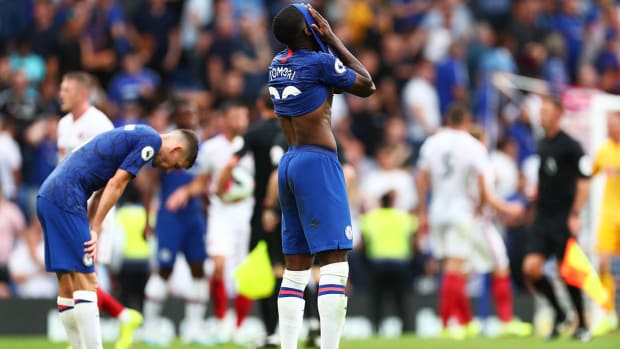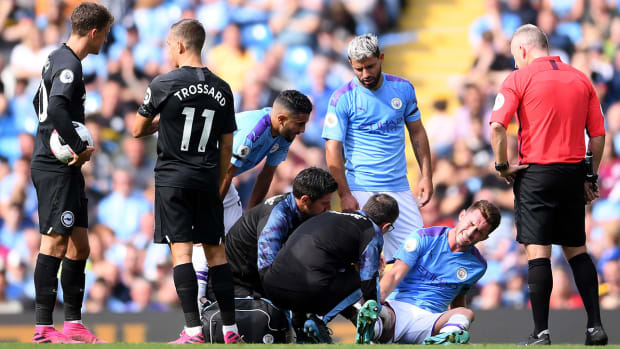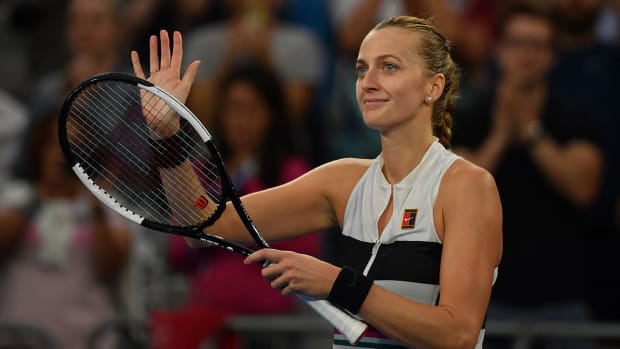Record-setting scoring changes face of college softball
The pitchers' duels that once dominated college softball are less common with teams across the country scoring runs and hitting homers at unprecedented levels.
As the Women's College World Series gets ready to start Thursday in Oklahoma City, teams are on pace to set NCAA records for the second straight season in national batting average, homers and runs.
''It's crazy,'' said Tennessee first baseman Taylor Koenig, who leads her team with 17 homers. ''It's just a hitter's game now.''
Last season featured NCAA records in national batting average (.275), runs (4.4 for each team per game) and homers (0.68 for each team per game). This season, the national batting average is up to .287 and totals also have increased in runs (4.8 for each team per game) and homers (0.77 for each team per game).
Just two years ago, eventual national champion Oklahoma was the only team to average over 6.85 runs per game. This season, 18 schools have exceeded that mark.
The Women's College World Series features four of the nation's seven highest-scoring teams in Michigan (8.31), Auburn (8.06), UCLA (7.97) and Oregon (7.60). All eight schools in the Women's College World Series are scoring at least 6 1/2 runs per game.
''Very seldom do you see the 1-0 game anymore. ... It's a rarity versus a common one like in the old days,'' Auburn coach Clint Myers said.
When they discuss the cause for the increased offense, coaches inevitably bring up the fact that hitters have become bigger, stronger and more athletic in recent years. But the reasons for this surge go beyond that.
Teams have video analysis software that allows players to analyze their swings, and the increased visibility of the game also allows hitters to get better scouting reports on pitchers.
Five years ago, ESPN televised just 28 regular-season softball games on its variety of networks and aired 13 more on its digital platforms. This season, ESPN televised 125 regular-season games and carried 401 more digitally.
Of course, all those additional televised games also give pitchers more opportunities to study opposing hitters. But Oregon hitting coach Jimmy Kolaitis believes the extra access to video benefits the batters more.
''The hitter can make adjustments,'' Kolaitis said. ''As a pitcher, you can still make adjustments, but the stuff that you have is the stuff that you have. If a team is struggling with a specific pitch, if that pitcher doesn't throw that pitch they have to go with what they've got, where a hitter can (say), `This kid's majority up-spin and rise ball. We're going to work all week on hitting the rise ball.'"
Coaches also say umpires are calling a narrower strike zone. Although the NCAA rule book says a pitch must graze at least part of home plate to be called a strike, coaches say umpires previously had been extending the strike zone from ''chalk to chalk,'' or from the front of one batter's box to the front of the other. The NCAA has made a point of emphasis recently to call balls and strikes as intended by the rule.
''Pitchers don't move the ball up and down as well as they did back when I played many years ago,'' Tennessee co-coach Karen Weekly said. ''They kind of got into more pitching side to side, taking advantage of umpires stretching that zone chalk to chalk. Now that it's brought back in, pitchers are going to have to learn how to move the ball up and down a little bit better.''
The improved hitting already has led to some adjustments in pitching strategies. In an attempt to give opposing hitters as many different looks as possible, more schools are relying on pitching by committee rather than having one ace carry a team throughout the postseason. If scores keep rising, more changes could be on the way.
''I think we're about to enter the era where you see softball start recruiting closers,'' Michigan coach Carol Hutchins said. ''We're going to have pitchers that are starters, middle relief and closers. We're definitely moving in that direction unless we change some of this (emphasis on) offense.''




